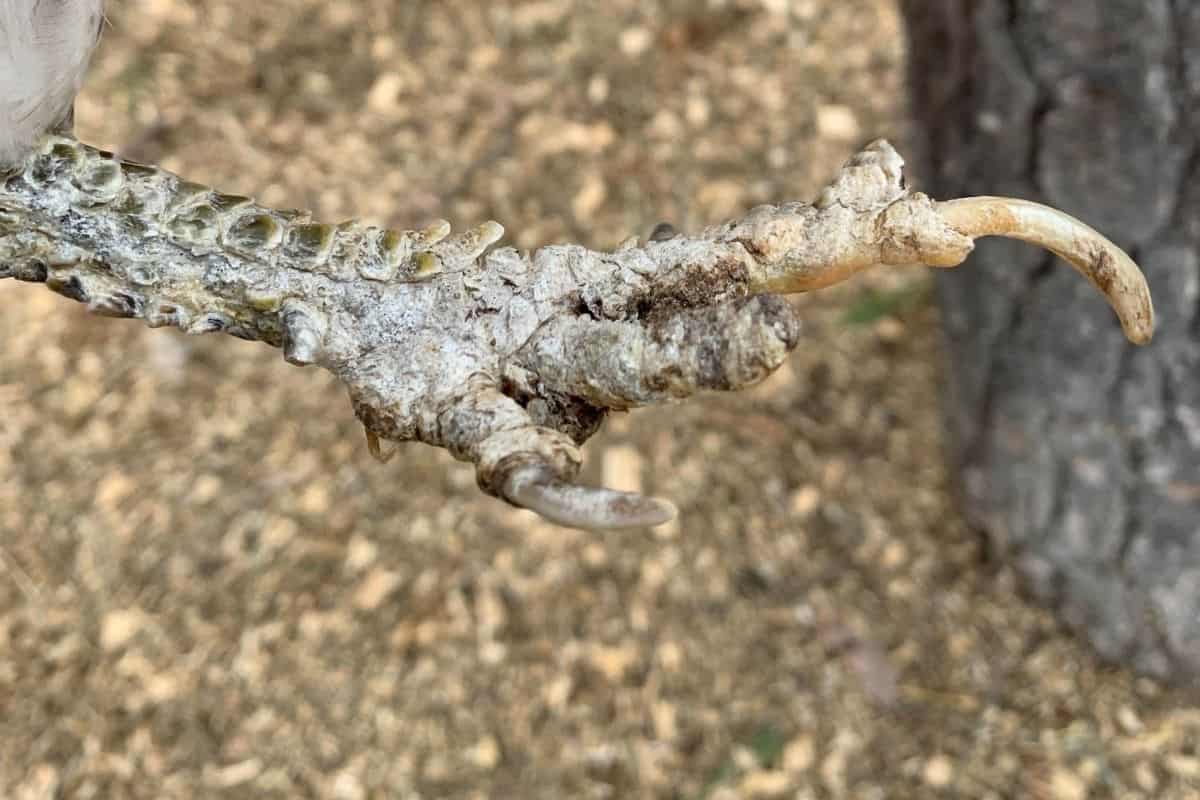
Scaly Leg Mites In Chickens Symptoms, Treatment, And Prevention
Scaly Leg Mites Scaly leg Mites are relatively easy to treat. This is caused by a tiny mite that burrows under the scales of the legs and toes. The buildup of it's colony and excrement cause the scales to raise away form the feet. In this first picture we see a few scales that have begun to raise. This is how it typically begins.
Scaly leg mites, limping what is normal? BackYard Chickens Learn How to Raise Chickens
The Scaly Leg Mite, also known as Scaly Foot, is a super tiny arthropod, a separate family of segmented invertebrates that you know of where the spiders and scorpions are their distant relatives. They're known in the scientific community as Knemidocoptes mutants. It's just that they're very small.
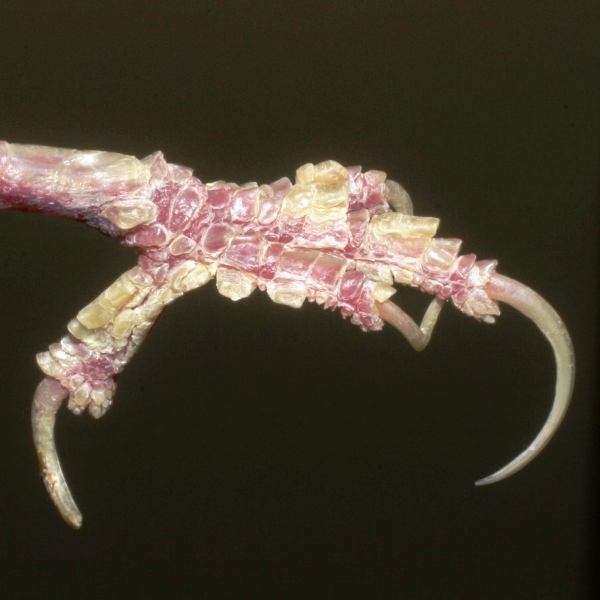
Foot Problems Scaly Mite, Bumblefoot and Gout Laraine's Lady Gouldians
Scaly-leg mites, scientifically known as Knemidocoptes mutant, is a tiny parasite that affects chickens. It is pale gray, round, and measures about 1/100 inch in diameter. While it is more common in older birds, it can also infest young chickens that are kept with older ones. The mite burrows under the scales on a chicken's shanks and feet.
Scaly leg mite diagnosis BackYard Chickens Learn How to Raise Chickens
If your chickens' legs look a little strange, it could be scaly leg mite which can be effectively cleared up by oiling the scales of the legs and feet. The treatment we have used for scaly leg mite is VetRx, alternated with other vegetable oils for affordability. Caught early, scaly leg mite can be beaten, with the legs gradually returning to.
Scaly leg/tassel foot and scaly face in quail and some thoughts on keeping quail and chickens
Symptoms of scaly leg mite in chickens range from mild to severe, including: Flaking, scaling skin on the legs and feet. Roughened or thickened skin. Uneven or lifted scales. White crusting or seepage of tissue fluid. Itchiness. Toe necrosis (Tissue death) Deformed feet. Impaired joint mobility.
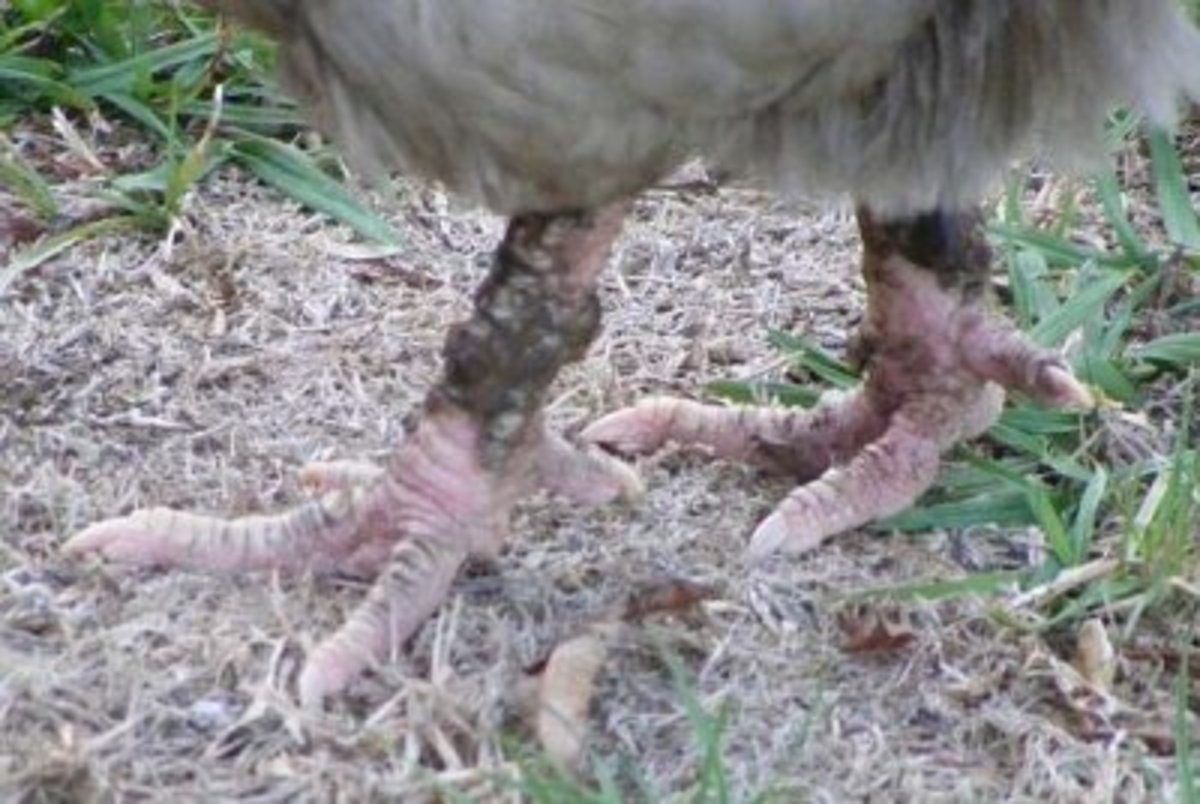
Chicken Scaly Leg Mite Easy Treatment at Home HubPages
The symptoms of scaly leg mites are: thick, rough skin on legs and feet. crusting, scabbing, and flaking of the skin. uneven scales and scales lying disorderly. lifted scales or bumps in the skin. deformation in the feet and toes. irritation and itching. lameness and difficulty walking.

How To Treat Scaly Leg Mite With VetRx Once Upon A Chicken
Scaly leg mites, scientifically known as Knemidocoptes mutans, are tiny external parasites that burrow under the scales of a chicken's legs and feet. As they feed on the skin tissues and keratin, the legs become inflamed, causing the scales to lift and form crusty and scaly lesions.
TREATING SCALY LEG MITES (SLM) WHAT YOU NEED TO KNOW BackYard Chickens Learn How to Raise
Scaly leg mites burrow under the scales on a chicken's shanks and feet, raising the scales by generating debris that accumulates beneath the scales. As a result, the chicken's once-smooth shanks thicken and crust over, and eventually become deformed, causing the chicken to go lame.

A Female scaly leg mite (Cnemidocoptes mutans) under light microscopy... Download Scientific
- What are Scaly Leg Mites? Scaly leg mites are a type of external parasite that can cause discomfort and pain to your chickens or other poultry by burrowing under the scales on their legs and feet. This causes the scales to become crusty and lift instead of staying flat and smooth.

Scaly leg mite infestation in Chickens
The scaly leg mite (Knemidocoptes mutans) commonly infests older hens by burrowing underneath the scales of the leg. This causes damage and inflammation, often with white crusting and exudate, sometimes this may become infected causing swelling and bleeding. Scaly leg mite causes severe irritation.
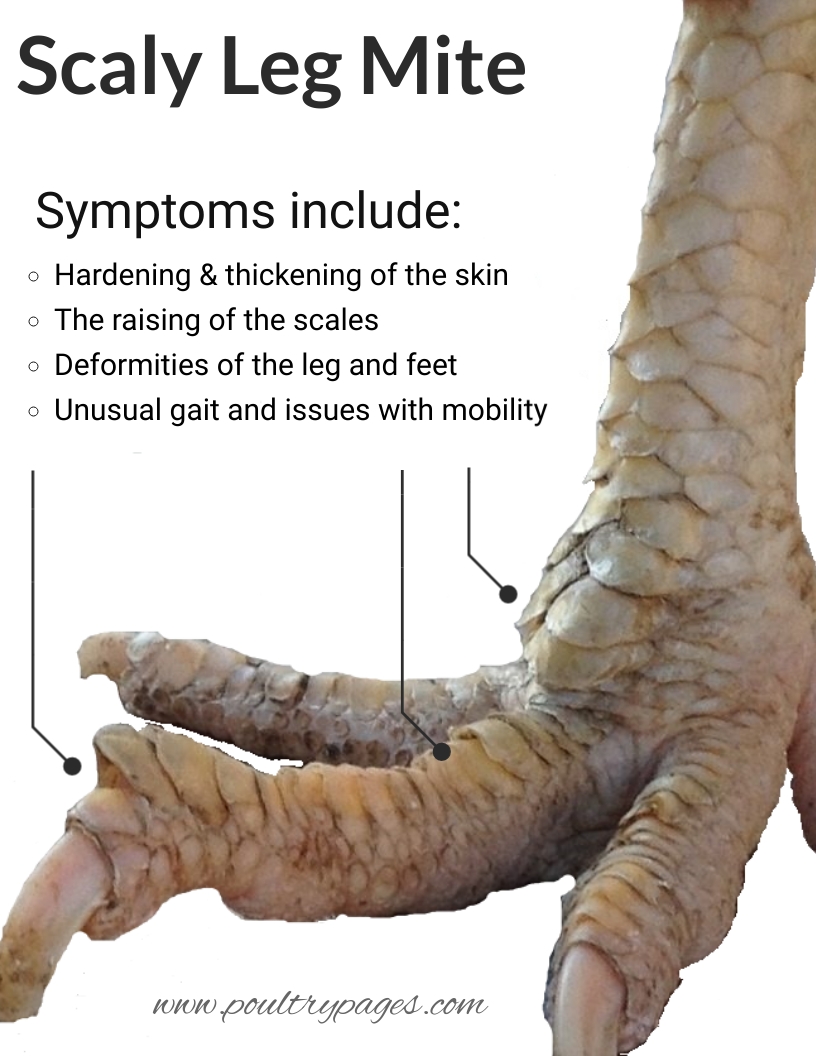
Scaly Leg Mites in Chickens 'How to Identify & Treat' with Photos
Scaly leg mites ( Knemidocoptes mutans) are a relatively common ectoparasite found in adult backyard chickens, turkeys, and pheasants worldwide. These mites are extremely tiny (not visible to the naked eye) and will spend their entire lives (10 to 14 days) burrowing tunnels underneath the cornified epidermis of the chicken's skin.

Scaly leg mite infestation in Chickens
Scaly leg mites are called an ectoparasite because they live on the outside of the bird's body. Here are some other common ectoparasites you may come across in backyard flocks. Red Mites - Found in cracks of the poultry house, crawling onto your birds for a feed while they roost at night.
Treating scaly leg mite in chickens!
Scaly leg mites ( Knemidocoptes mutans) are microscopic insects that live underneath the scales on a chicken's lower legs and feet. They dig tiny tunnels underneath the skin, eat the tissue and deposit crud in their wake. The result is thick, scabby, crusty-looking feet and legs.
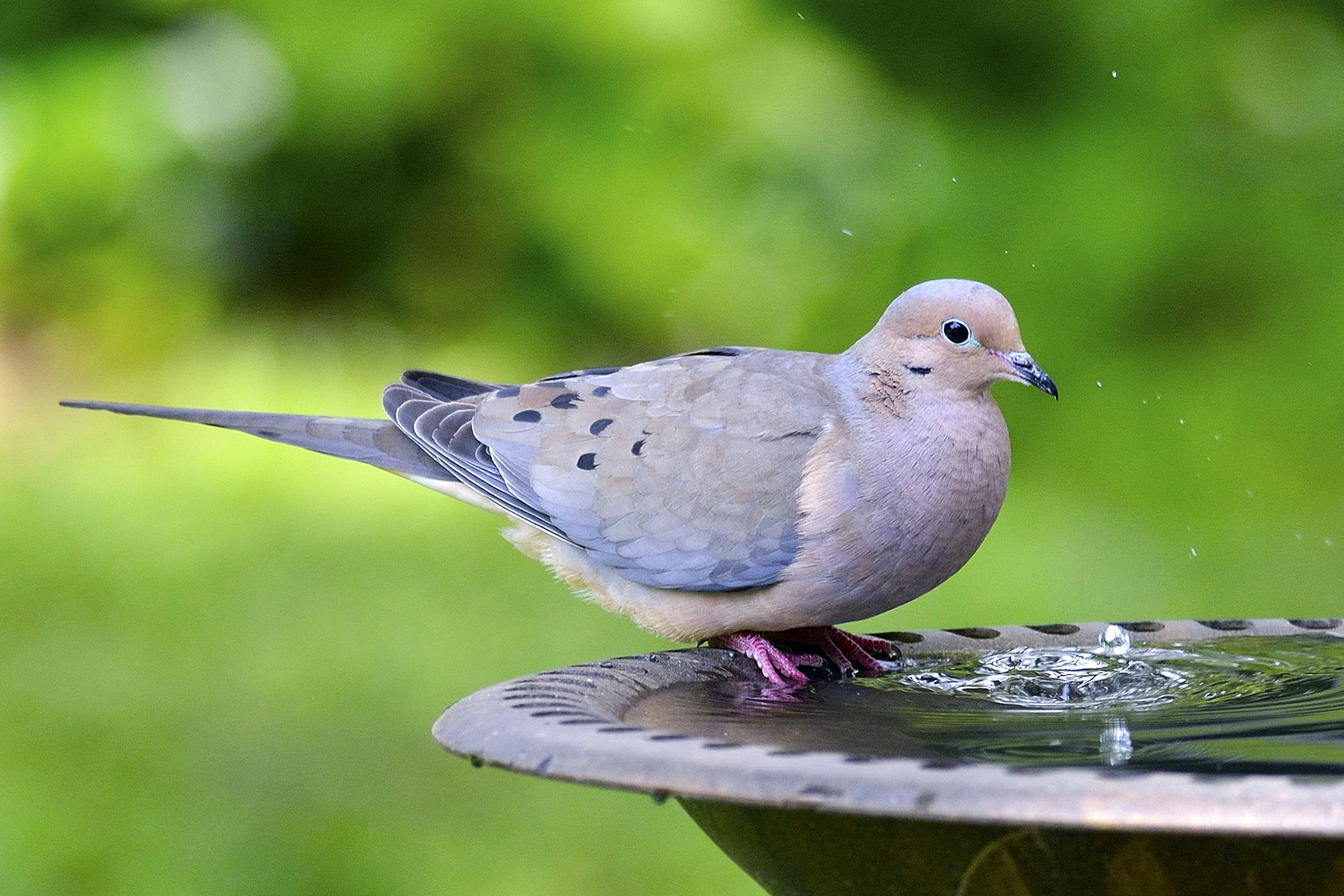
Scaly Leg Mite in Birds Symptoms, Causes, Diagnosis, Treatment, Recovery, Management, Cost
Scaly Leg Mites is an infestation of microscopic insects, known as mites, that live on the feet and shanks of chickens. Their presence causes a gradual shift in the condition of the scales. This is because these microscopic insects spend their days digging tiny tunnels under the skin while consuming tissue and leaving behind their excrement.

Scaly leg mite infestation in Chickens
Scaly leg mites (Knemidocoptes mutans) are external, burrowing parasitic mites that live on the legs of chickens. They are round with four legs positioned close to their retractible feeding appendage. These mites are microscopic in size and cannot be seen with the naked eye.
Help Verify Scaly Leg Mites? BackYard Chickens Learn How to Raise Chickens
Scaly leg mites (Knemidocoptes mutans) are parasitic mites that burrow under the scales of a chicken's legs and feet, causing inflammation, irritation, and discomfort. These mites are highly contagious and can quickly spread through a flock, especially in crowded or unclean environments. They are more common in older birds, but chickens of.